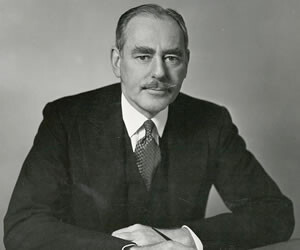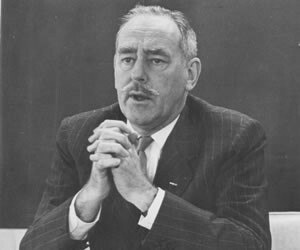

Last Updated: 18 Apr, 2023 | Views: 1106
Age: 78
Profession: Historical Men
Other Profession(s): Politician, Lawyer, Statesman
Famous For: 51st United States Secretary of State
Higher Education: Yale University (BA), Harvard University (LLB)
About (Profile/Biography):
Dean Acheson (1893-1971) was a prominent American statesman and lawyer who served as the United States Secretary of State from 1949 to 1953 under President Harry S. Truman. He played a critical role in shaping U.S. foreign policy during the early years of the Cold War, including the creation of NATO and the Marshall Plan. Acheson was also a key figure in the Korean War, and his memoir "Present at the Creation" is considered a seminal work on American diplomacy in the post-World War II era.
Dean Acheson Career:
1919: After serving in World War I, Dean Acheson began his legal career at a prominent New York law firm.
1933: Dean Acheson joined the U.S. Department of State during the administration of President Franklin D. Roosevelt, serving in various roles over the next decade.
1941-1945: During World War II, Dean Acheson served as an assistant secretary of state and played a key role in shaping U.S. foreign policy.
1949-1953: Acheson served as Secretary of State under President Truman. A central figure in NATO, the Marshall Plan, and the UN's establishment, he played an important role during his time in office.
1953-1971: Following his departure from government service, Dean Acheson continued to be active in public life, serving on various commissions and writing several books on foreign policy.
Dean Acheson Awards:
1953: Presidential Medal of Freedom from President Truman
1954: Sylvanus Thayer Award
1961: Pulitzer Prize for History for his memoir "Present at the Creation
1963: Presidential Medal of Freedom from President John F. Kennedy
Dean Acheson Unknown Facts:
Dean Acheson was a strong advocate for civil rights and played a key role in desegregating the State Department and other federal agencies.
Dean Acheson was a key figure in establishing the Truman Doctrine, which pledged U.S. support for countries threatened by communism. The doctrine became a cornerstone of U.S. foreign policy during the Cold War.
Wait!
Here're some popular profiles for you.


